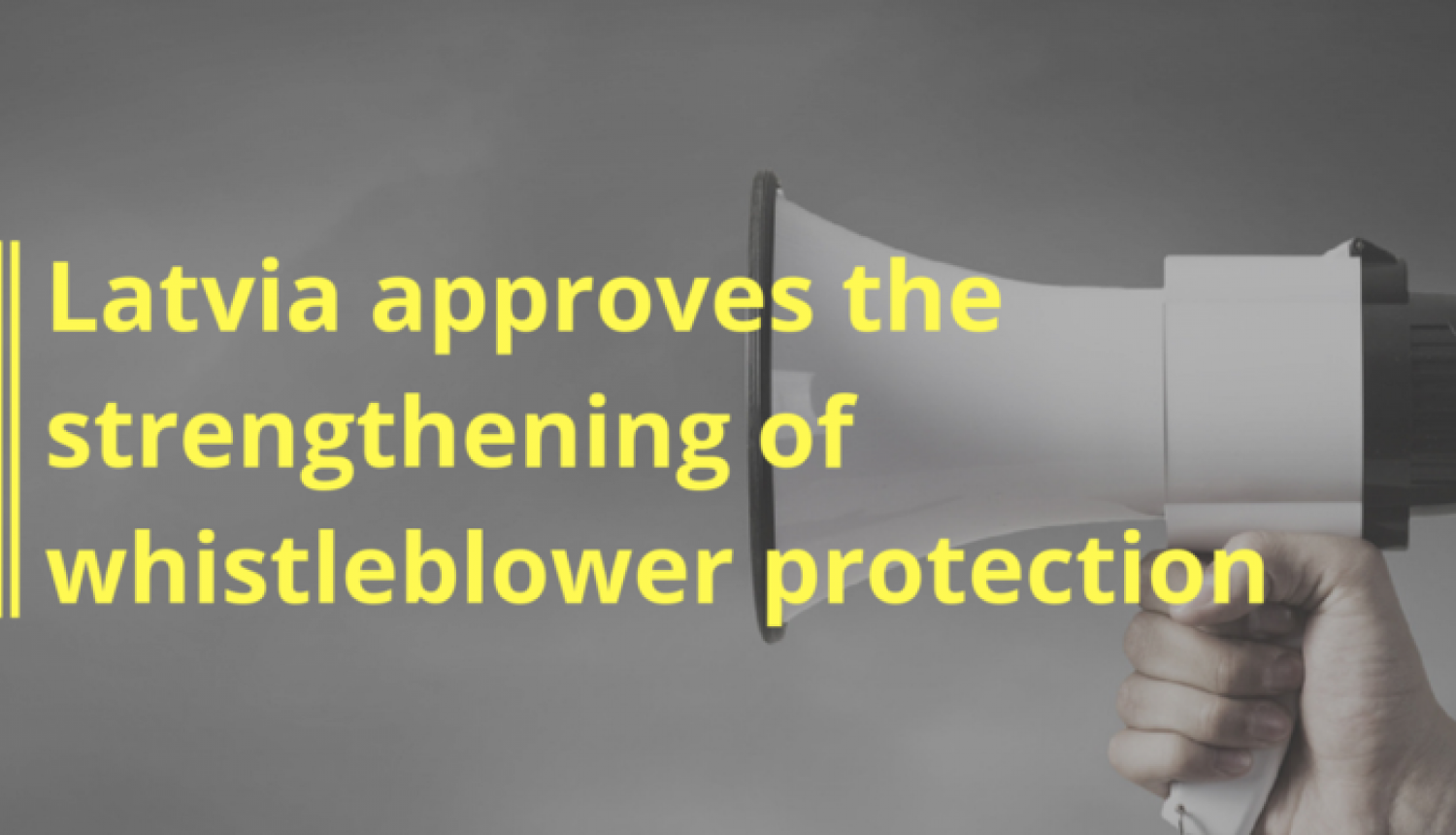On Tuesday 11 October, the Saeima in the final reading supported the Whistleblowing Law with the aim to strengthen the whistleblower protection in Latvia and promote whistleblowing on various violations that can harm the public interest.
The Law defines a whistleblower, how to spread alarm and stipulates the basic requirements for processing the whistleblower’s report.
The Law provides for several elements of whistleblower protection, for example, the prohibition to create adverse effects on the whistleblowers (to dismiss from a job, to punish, to demote etc.), if one has made a whistleblower report, the protection of the identity of the whistleblower and a free legal aid provided by the State.
The Law stipulates that to report ("spread alarm") means to give professional activity related information in good faith on a possible infringement that can undermine public interest, if there are grounds to believe that this infringement is taking place, is being planned or has occurred.
A whistleblower – a natural person who provides information on the possible infringement that can undermine public interest, if the person has grounds to believe this information to be true and it has been obtained in relation to work or establishing a work-related legal relationship.
The whistleblower will be able to spread alarm about possible offence, misdemeanour or other violation of legal, ethical or professional norms regardless of the area where it has occurred. The Law also defines the areas where it is particularly important to spread alarm in the public interest:
• inactivity, negligence or abuse of authority by a public official;
• corruption;
• fraud;
• waste of financial assets and property of a public person;
• tax evasion;
• public health;
• food safety;
• construction safety;
• environmental safety;
• occupational safety;
• public order disturbance;
• human rights;
• public procurement;
• financial and capital market sector;
• competition law.
The whistleblower will be able to spread alarm in two ways – internally (at the workplace) or externally (to the competent authority). The Law also stipulates the cases where the alarm can be spread by publicly disclosing the information. The whistleblower can spread alarm through the Whistleblowers Contact Point, associations and foundations, trade unions or their associations.
The Law will come into force on 1 May 2019 and the Whistleblowers Contact Point will be established in the State Chancellery. It will ensure that sufficient information and support for the whistleblowers, as well as methodological support for putting the whistleblowing mechanism into practice are accessible in one place.
In Latvia, the work on the whistleblowing mechanism started in 2014. Representatives from the government, the Saeima and the society all participated in the drafting of the law approved by the Saeima.
Over the last twenty years, the whistleblowing has become more popular around the world. In the recent years, similar laws on whistleblowing have been adopted in Belgium, Ireland, Slovak Republic, the Netherlands, France, Sweden, and Lithuania. The European Commission has also proposed a directive on whistleblowing.
Eduards Ozoliņš
Consultant of the Communication Department
State Chancellery
Phone: 68082929
E-mail: eduards.ozolins@mk.gov.lv



